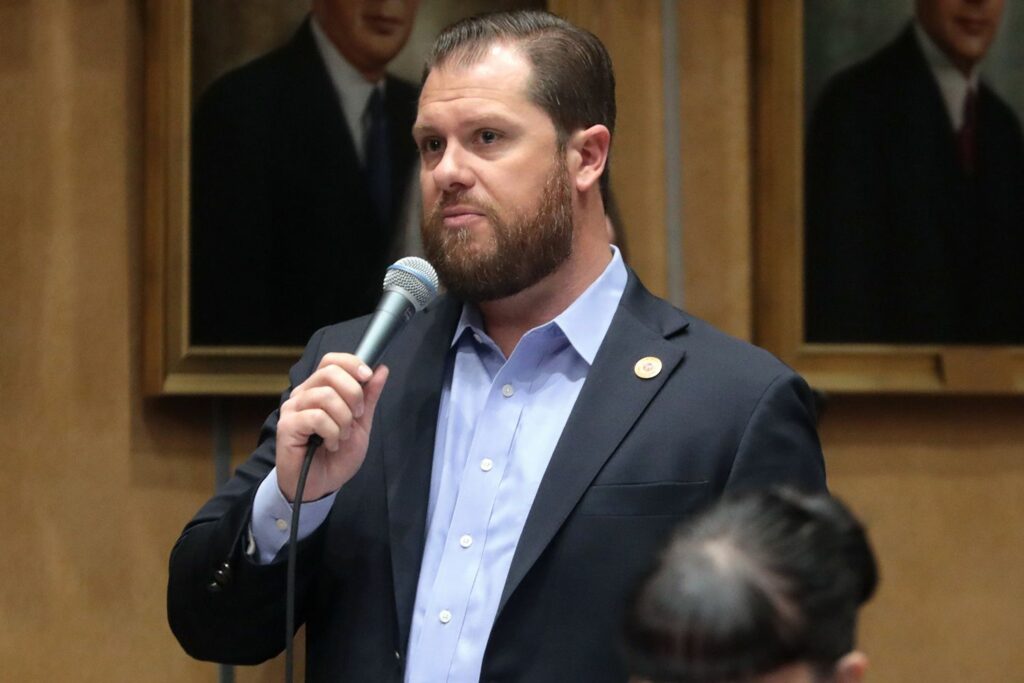Arizona Senator Avoids Speeding Ticket Due to Legislative Immunity
In a recent incident, Senator Jake Hoffman from Arizona was recorded driving at a speed of 89 miles per hour in a zone with a legal limit of 65 mph. This occurred during a routine traffic stop on January 22, as reported by the Arizona Department of Public Safety (DPS). Remarkably, Hoffman did not receive any citation for his speeding due to principles outlined in the state’s constitution regarding “legislative immunity.”
The Incident Unfolds
Authorities indicated that upon being stopped, Senator Hoffman did not formally invoke his legislative immunity; rather, the trooper recognized him as an elected official who was actively participating in legislative sessions. According to statements made by DPS representatives to PEOPLE magazine, “The Trooper recognized and verified that Mr. Hoffman is an Arizona State Senator, and currently in legislative session.”
Constitutional Protection for Legislators
The provision granting such privileges can be found within Article 4, Section 6 of the Arizona State Constitution. This article delineates protections afforded to lawmakers during their terms:
“Members of the legislature shall be privileged from arrest in all cases except treason, felony and breach of the peace…nor for fifteen days prior to each session commencement.”
Senator Hoffman’s situation highlights how these protections are applied—specifically when the legislature is actively engaged.
A History of Similar Incidents
This isn’t an isolated case; other officials have similarly escaped penalties due to these provisions. Just days after Hoffman’s encounter with law enforcement on January 25th, Senator Mark Finchem was also pulled over for speeding. Moreover, former State Representative Paul Mosley faced scrutiny back in 2018 when he was cited for exceeding speed limits at rates reaching up to 97 mph on state Route 95—nearly double what is permissible.
Mosley attributed his excessive speed partly to being unaware while behind the wheel because he enjoyed driving high-performance vehicles equipped with advanced suspensions.
In response to his offense and subsequent public backlash over invoking legislative privilege while being pulled over for speeding—a scenario likened often among constituents—Mosley offered apologies via social media shortly thereafter.
Legislative Changes Under Consideration
In light of recurring events involving lawmakers benefiting from this constitutional safeguard amidst traffic violations, Republican State Representative Quang Nguyen has proposed HCR 2503 aimed at revoking such immunities concerning minor infractions like speeding tickets. Should this resolution pass through state channels successfully and reach voters’ ballots come 2026, Arizonans will have their chance at redefining accountability standards among elected officials.
“We need transparency,” emphasized Nguyen during discussions related to this proposal. “It’s essential we demonstrate that laws apply equally—to both public servants and citizens alike.”
As ongoing discussions unfold regarding legislators’ accountability norms amid instances like those involving Senators Hoffman and Finchem or former Representative Mosley—it becomes increasingly relevant whether current protective measures serve more as justifications rather than legitimate safeguards meant for governance integrity.
For ongoing updates surrounding pertinent news stories—including political happenings affecting local communities—don’t forget check out PEOPLE’s free daily newsletter designed highlighting significant societal narratives every day!
